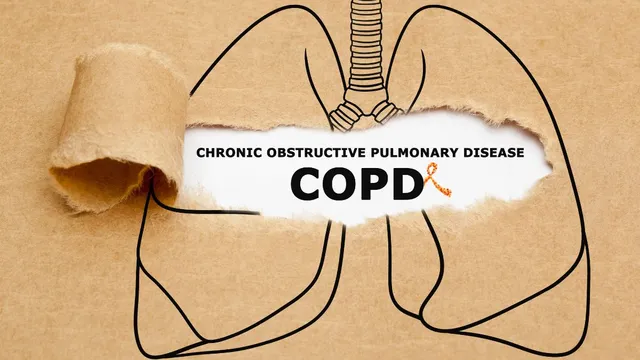- By Priyanka Munshi
- Thu, 21 Nov 2024 05:55 PM (IST)
- Source:JND
Chronic obstructive pulmonary disease (COPD) refers to a group of diseases that impair breathing. Emphysema, which causes shortness of breath, and chronic bronchitis, characterized by persistent coughing, are the two primary forms of COPD that affect many people worldwide. The common causes of COPD include smoking, air pollution, and prolonged exposure to dust and fumes. This condition significantly impacts overall well-being and quality of life.
Risk factors for COPD include smoking, advanced age, a history of respiratory infections, air pollution, asthma, secondhand smoke, exposure to dust and fumes, and underdeveloped lungs. Understanding these risk factors is essential for early detection and timely intervention. In a conversation with Jagran English, Dr. Sandeep Kadian, an Intensivist, General Physician, and Chest Physician at AIMS Hospital in Dombivli, discussed the causes, symptoms, risk factors, and treatment options for COPD.
What Are the Symptoms of COPD?
Individuals with COPD may experience symptoms such as:
- Persistent cough
- Difficulty breathing
- Wheezing
- Bluish skin (cyanosis)
- Reduced ability to perform physical activities, such as climbing stairs or exercising, due to declining lung function.
What Are the Complications Associated with COPD?
COPD can lead to severe complications, including:
- Respiratory failure
- Pneumonia
- Pulmonary hypertension
- Collapsed lung (pneumothorax)
How Is COPD Diagnosed?
To diagnose COPD, a doctor will review the patient’s medical history and symptoms and recommend diagnostic tests, such as:
- CT scan
- X-ray
- Spirometry
- Electrocardiogram (ECG)
- Phlegm sample analysis
What Is The Treatment For COPD?
Treatment For COPD includes:
- Pulmonary Rehabilitation: This involves exercise training, nutritional counseling, and education about the disease to improve respiratory function and overall quality of life. It also equips patients with skills to manage their symptoms better.
- Personalized Interventions: Genomic advances enable tailored treatments based on an individual’s genetic makeup and lifestyle, ensuring effective medication with minimal side effects.
- Additional Treatments: Doctors may recommend smoking cessation therapy, oxygen therapy, inhaled medications, bronchodilators, corticosteroids, and antibiotics. Patients must strictly adhere to the prescribed guidelines.
Preventive Measures To prevent COPD
- Quit smoking
- Limit exposure to dust and fumes
- Get vaccinated against flu, pneumococcal pneumonia, and COVID-19
- Avoid crowded places
- Wear a mask to protect against air pollution and infectious diseases
- Disinfect frequently touched surfaces

